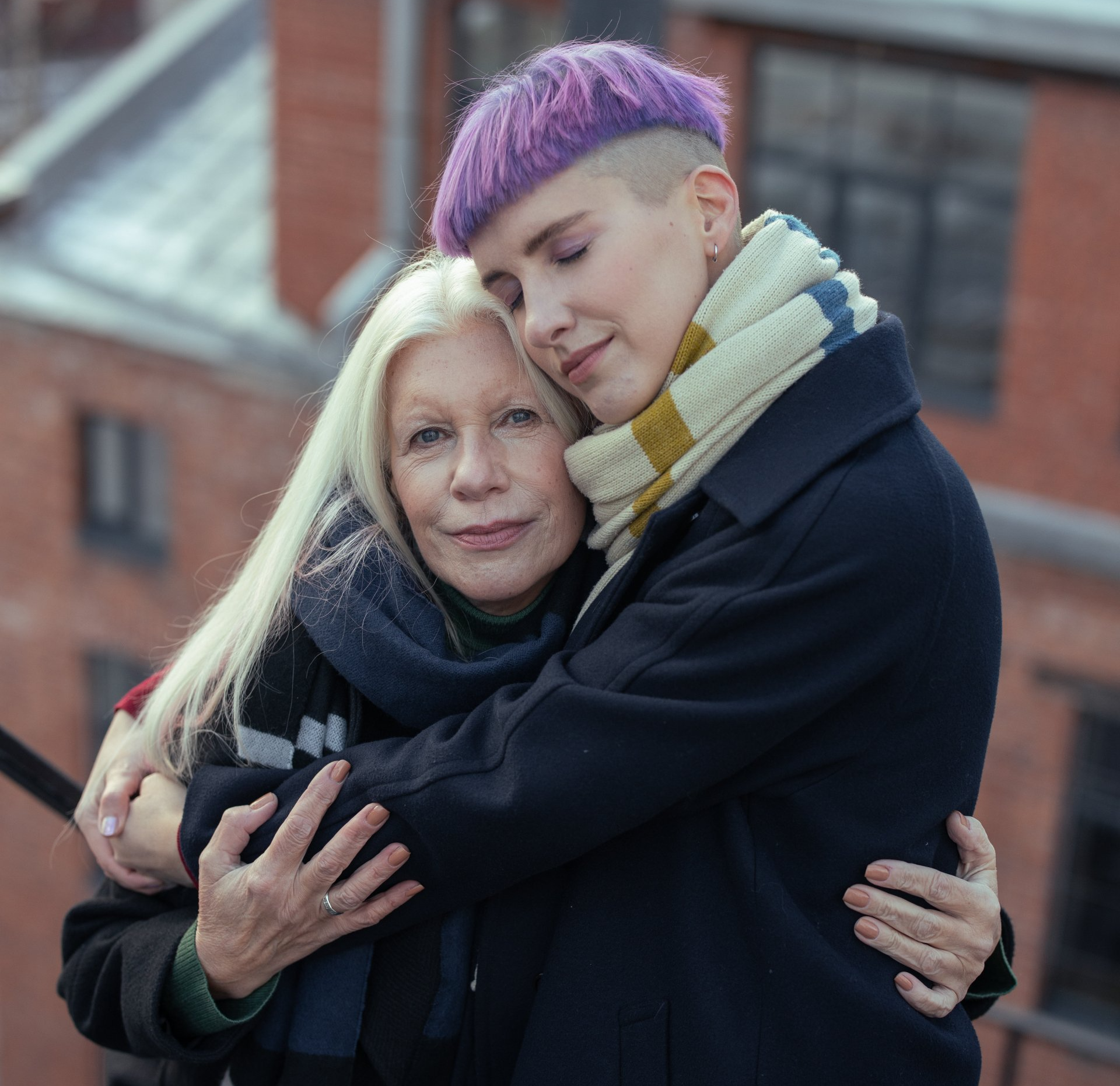Reading time: 8 mins
Perhaps your partner, child or close friend has told you that they binge eat, or maybe you’ve picked up on some of their behaviours that point to binge eating. And you of course want to be there for them, however you’re just not sure what to say or how best to support them.
That’s okay! In this guide, we’re going to look at what you need to know about binge eating, and how you can help them in the most loving ways.
Understanding binge eating
Generally, many people are unfamiliar with binge eating, especially as an eating disorder so don’t be hard on yourself if you don’t know much about it, if anything. And binge eating has lots of misconceptions around it too; we often believe that the person struggling just needs more willpower or should be able to snap out of it.
But neither of these things are true. People who binge are often incredibly disciplined, but there are two parts of them batting it out; the part that needs the binge and the part that wants to recover. And this inner battle can cause a lot of suffering.
Getting a good understanding of binge eating is a great place to start. I’ve written
a guide looking at what binge eating and binge eating disorder are, so I highly recommend you take a look at this.
Beat is the UK’s leading eating disorder charity and has
a great page explaining binge eating disorder here too.
It's also helpful to know that most people keep their binge eating a very guarded secret; there can be a lot of guilt and shame surrounding it. And so this person has likely shared this with you from a vulnerable place and is trusting that you will have their best interests at heart.
Ask them how they want to be supported
Allow them to let go of weight loss as a goal
An important part of binge eating recovery for many people is to intentionally stop trying to lose weight.
There are lots of reasons why people binge, and one of the most common leads to what’s known as “the binge and restrict cycle”. This starts when someone feels insecure about their body, particularly about the size and shape of it and diet or restrict food in order to lose weight. For some, this dieting can trigger a very real and urgent physiological and psychological need for food, and this can lead to a binge. The cycle continues when they then feel the need to “make up” for the binge, and so continue to restrict their food, again driving them to binge. To be able to break this cycle they need to let go of the desire, for now at least, to lose weight.
When they stop trying to intentionally lose weight, it also gives them space to work on healing their relationship with their body. This might look like learning to accept and love it exactly as it is, eating for true nourishment as well as pleasure, and exercising to feel good.
If you recognise their behaviour in the binge and restrict cycle I described, I have a free 5 part mini-course you might want to make them aware of. It’s all about how to
free themselves from the binge and restrict cycle, without feeling uncontrollable around food.
Be patient with them
Give them space
The hard truth is that recovery for most people isn’t easy. It takes big, fundamental change, self-inquiry and reflection and this can be really uncomfortable for many reasons.
One of the best ways that you can support your loved one is to give them the space that they need to do this important work in their recovery.
Show them they are loved
Make sure you’re also supported
If this loved one is leaning on you a lot, and you’re finding it a challenge, that’s okay. Perhaps you also need support. Do you have someone that you can talk to, either someone close to you or a professional? If you feel as though the help you’re giving is too much, or you’re out of your depth, communicate this to your loved one. Perhaps now would be a good time to look into the right external support together.
Remember there is never any shame in reaching out and asking for what you need.
Reflect on your own relationship with food and your body
Keep an open conversation going
Binge eating can be a very hard thing to talk about, especially if someone doesn’t feel like they’re making the progress they want. Your loved one bringing it up in the first place likely took a lot of bravery and so help them by keeping the conversation going. Keep it light, open and touch base regularly.
A couple of helpful opening questions you might want to ask include: “What, if anything, has been coming up for you [in your recovery] lately?” and “Last time we talked about binge eating you mentioned X, how’s that been?”.
I hope this guide has helped you to feel better prepared to support your loved one. My ex-partner and I are currently co-writing an interview-style article as a part-2 to this one which you may find helpful. Mark was with me through the majority of my own 14-year challenge with binge eating and is sharing his own experience and advice. Watch this space…
You might also want to know that 1-1 Binge Free & Worthy coaching can include updates and support for loved ones where needed. For the Hussein family, this has been a parent session every three months.





